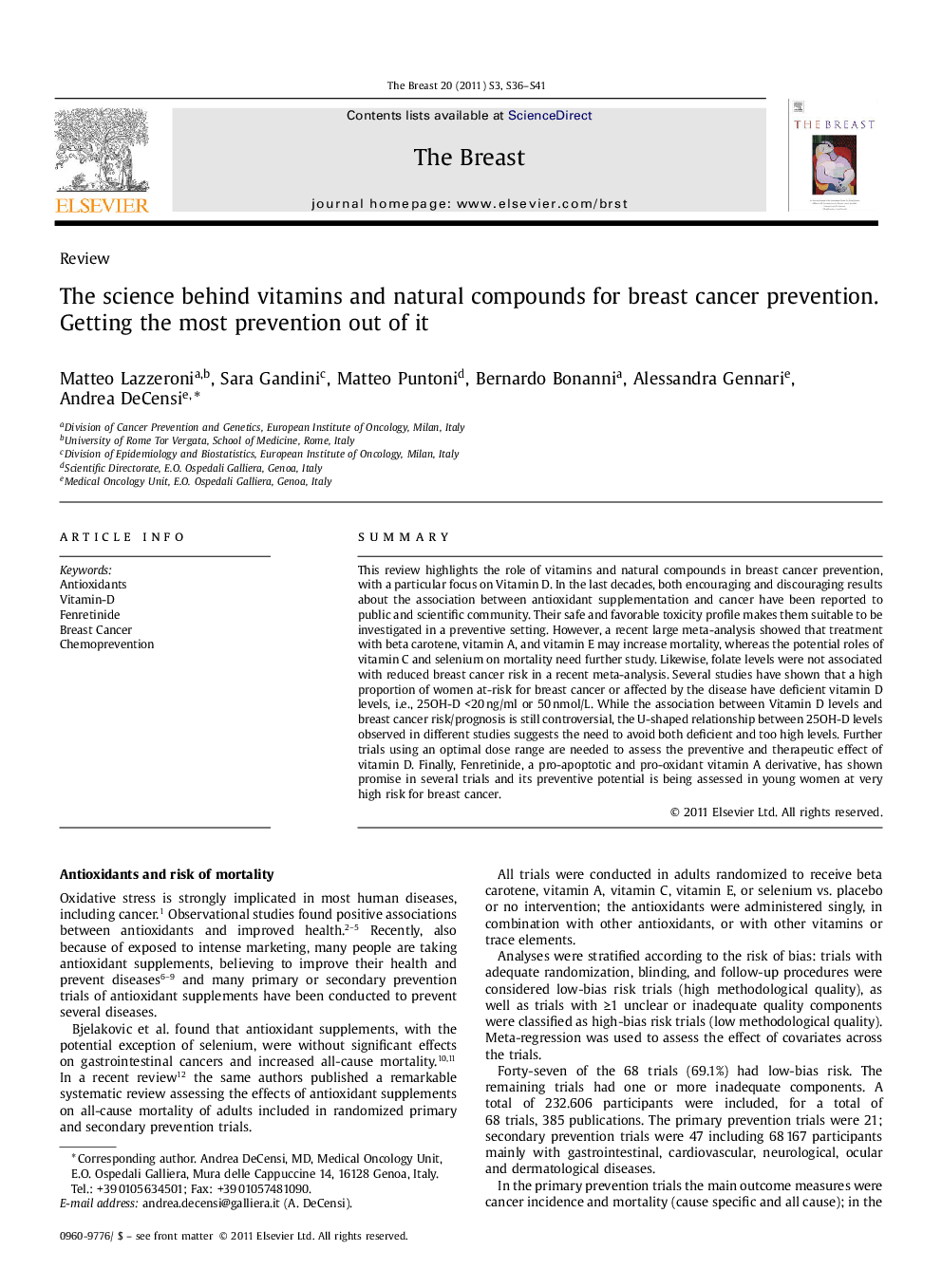| Article ID | Journal | Published Year | Pages | File Type |
|---|---|---|---|---|
| 3909151 | The Breast | 2011 | 6 Pages |
SummaryThis review highlights the role of vitamins and natural compounds in breast cancer prevention, with a particular focus on Vitamin D. In the last decades, both encouraging and discouraging results about the association between antioxidant supplementation and cancer have been reported to public and scientific community. Their safe and favorable toxicity profile makes them suitable to be investigated in a preventive setting. However, a recent large meta-analysis showed that treatment with beta carotene, vitamin A, and vitamin E may increase mortality, whereas the potential roles of vitamin C and selenium on mortality need further study. Likewise, folate levels were not associated with reduced breast cancer risk in a recent meta-analysis. Several studies have shown that a high proportion of women at-risk for breast cancer or affected by the disease have deficient vitamin D levels, i.e., 250H-D <20ng/ml or 50nmol/L. While the association between Vitamin D levels and breast cancer risk/prognosis is still controversial, the U-shaped relationship between 250H-D levels observed in different studies suggests the need to avoid both deficient and too high levels. Further trials using an optimal dose range are needed to assess the preventive and therapeutic effect of vitamin D. Finally, Fenretinide, a pro-apoptotic and pro-oxidant vitamin A derivative, has shown promise in several trials and its preventive potential is being assessed in young women at very high risk for breast cancer.
